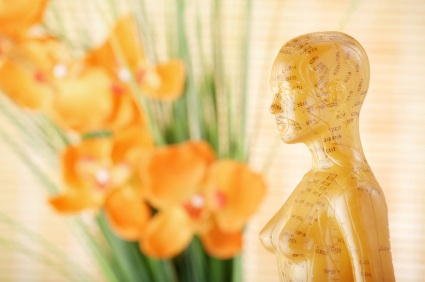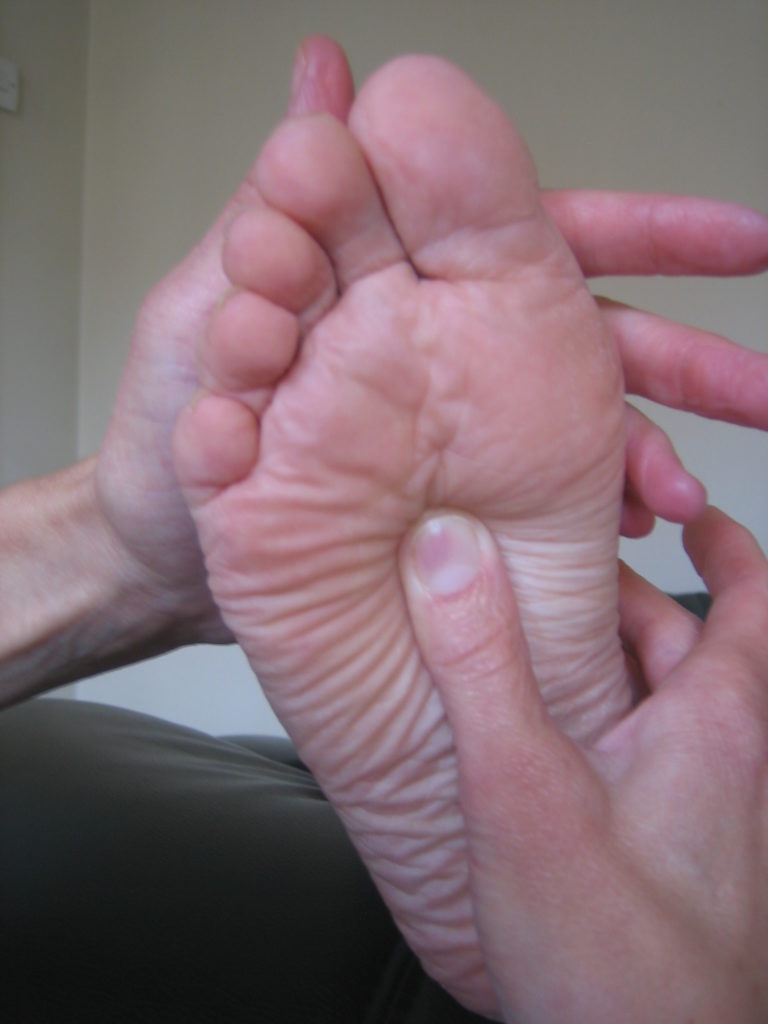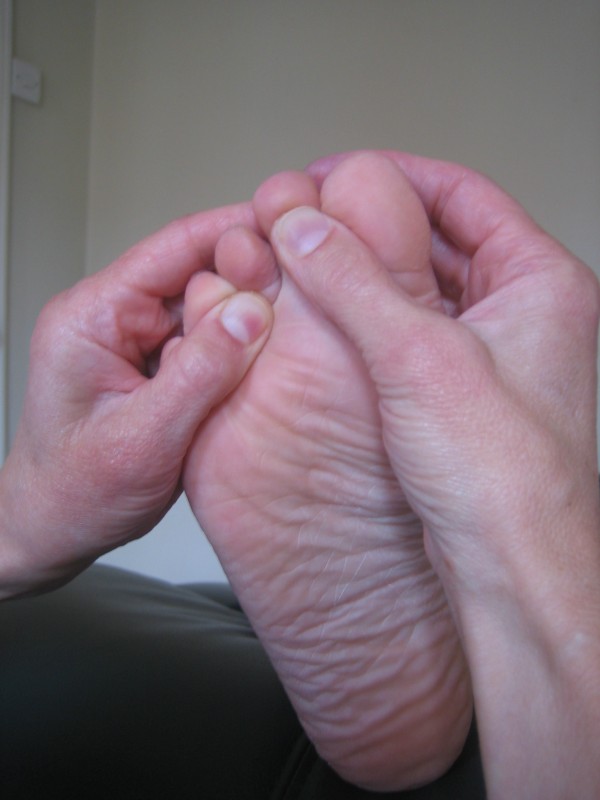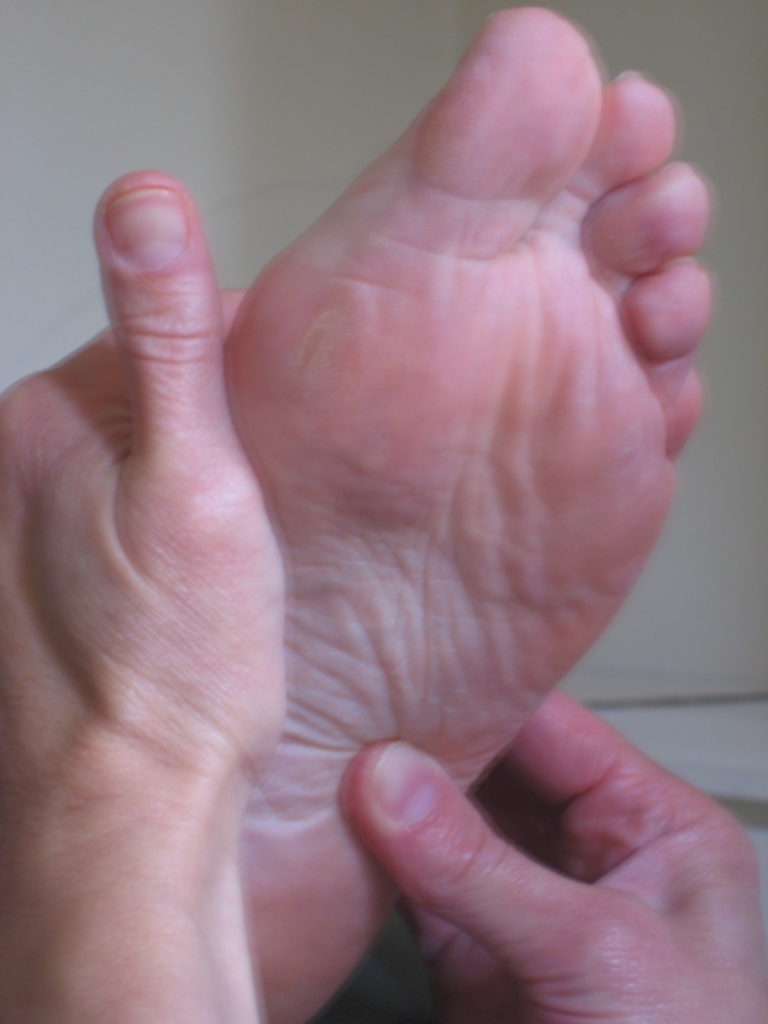Origins
Reflexology is thought to have originated in Ancient Egypt and China many thousands of years ago, but modern Reflexology was first developed in the United States in the early 20th century, and was originally called “zonal therapy”. It is based on the theory that the body is divided into ten zones running longitudinally from head to toe — five on each side of the body. Precisely applied pressure on specific reflex points on the foot or hand will affect body organs in the same zone.
Traditional Chinese Medicine (TCM)
In recent years, we in the West have become increasingly familiar with the concept that energy, or “Chi”, flows around the body through specific channels or meridians, and that disease is associated with blockages and imbalances in this flow. This principle underlies all Traditional Chinese Medicine (TCM) including Acupuncture and Shiatsu (Acupressure).

Reflexology
Although Reflexology is based on the theory of “zones” instead of TCM’s theory of “meridians”, both treatments have in common the principle that working on specific points can bring about a therapeutic effect in other parts of the body. Consequently modern Reflexologists have begun to incorporate the Acupressure techniques of TCM into their work, but whereas an Acupuncturist will work with needles on points all over the body, the Reflexologist concentrates on the most sensitive parts of the zones/meridians where they begin and end, primarily in the feet, and uses only her fingers to stimulate and sedate.
To the trained Reflexologist the whole of the body is mirrored in the soles of the feet, and there are reflexes in the feet relative to each and every organ and body part. By stimulating these reflexes it is possible to detect and treat many health problems in a natural non-invasive way.
A Reflexology treatment is, therefore, far more than just a foot massage. It can induce a state of relaxation, improve energy flow and blood supply, and help to restore equilibrium throughout the body.
A major study commissioned by the Northern Ireland Department of Health found that 84% of patients referred for complementary therapies by their GP reported improvements in health. In 65% of cases GPs confirmed the improvement, while also prescribing less medication and making fewer referrals to hospital.


